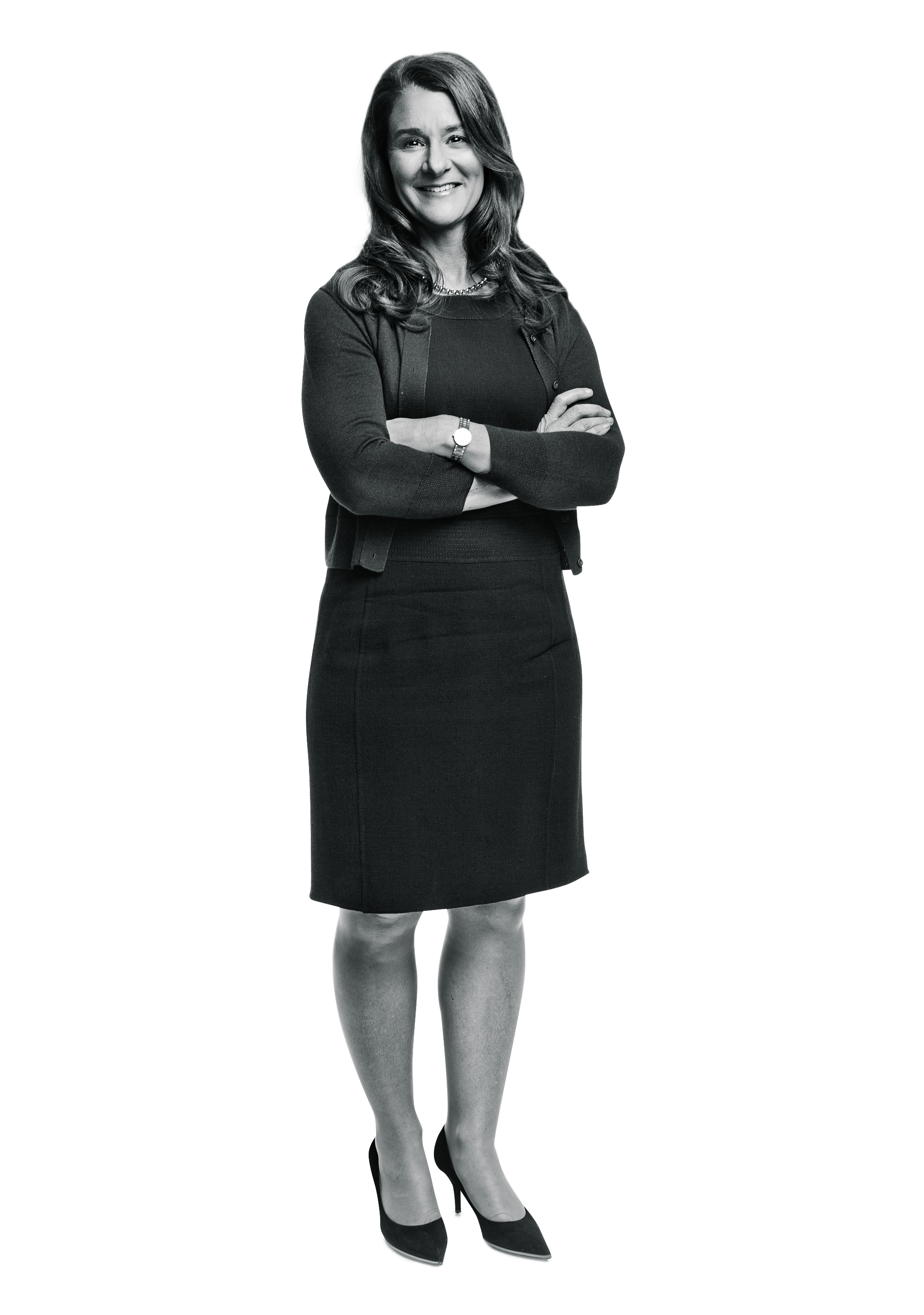
You just turned 50. Did that change how you look at life?
I used my 50th birthday to look forward and say, “I basically have 25, maybe 30 great years of working life left. What do I want to accomplish?” And so it means at the [Gates] Foundation, I’ve let go of a few of the science meetings. I trust Bill has those. I’m taking more meetings about women’s and girls’ issues and the cultural behavior-change pieces of that. And we’ve [taken on] contraceptives and raised $2.3 billion.
Are there technological breakthroughs in contraceptives?
This is a field where we haven’t done much research in the last 20 years. One day we might be able to have a contraceptive that would dissolve, like a breath mint, that she’d be able to put in her vagina, and it will last, say, 30 days. Or it’s an implant that you can put in your arm that lasts three to five years. We’ve gotten those down to two very small rods, and after the London Family Planning Summit we have money, so we helped work with manufacturers and brought the prices down by half.
You were raised Catholic. Clearly, you’re a big believer in contraceptives. Do you draw a line at abortion?
The foundation only funds contraceptives. We do not do the abortion piece. But then again, we always try to work upstream. With contraceptives, you don’t put the woman in a situation where she needs to make that decision.
Last year you gave away about $3 billion. Do you worry that people think, “Well, the Gates folks have got this. What’s the point of throwing in my $20?”
We try to always remind people that all the foundation can do is take some experiments and some risks where the government can’t or won’t. We could spend all of the foundation’s money just trying to solve HIV/AIDS, tuberculosis and malaria. I try and get people to look at where their passion is and just start somewhere.
Do you worry about your children and your great wealth?
You teach children your values, and you try to live those values out. My belief is that if you do that, they’re going to turn out O.K. I think sometimes with greater wealth, people get away from living their values for whatever reason. Maybe the wealth pulls them in or they start taking fancy trips.
What would you do if your daughters said, “I’m not interested in a STEM [science, tech, engineering, math] career?”
I’d say, “Go where your passion is.”
Even if it’s modeling?
Well, I’d try to steer them in a different direction. That one would be tough for me.
You’ve been calling for more data on child brides. Given that even one underage girl married against her will is too many, why do we need data before we act?
You have to know where child marriages are happening, and specifically what countries and what regions, and in what ways. That will inform where you go to do the work. Without data, I don’t really know how to act.
Does the world’s richest man ever unload the dishwasher?
Actually, no, but he loads it. After dinner, we all do the dishes together. He likes to wash the dishes. He grew up with his sister washing the dishes. He will load, but his preferred thing is to wash. He does not like to unload. Or, we don’t make him unload–put it that way.
You often say that you and Bill are impatient optimists. As you’ve been in this philanthropy business for a long time, have you become more patient or less optimistic?
No, I’m impatient. I want to get contraceptives done. I want to halve child mortality yet again. When you travel and meet people, you see that if they have that one tool, they lift themselves up. I’d say we’re less naive but more optimistic.
–BELINDA LUSCOMBE
More Must-Reads from TIME
- Donald Trump Is TIME's 2024 Person of the Year
- Why We Chose Trump as Person of the Year
- Is Intermittent Fasting Good or Bad for You?
- The 100 Must-Read Books of 2024
- The 20 Best Christmas TV Episodes
- Column: If Optimism Feels Ridiculous Now, Try Hope
- The Future of Climate Action Is Trade Policy
- Merle Bombardieri Is Helping People Make the Baby Decision
Contact us at letters@time.com